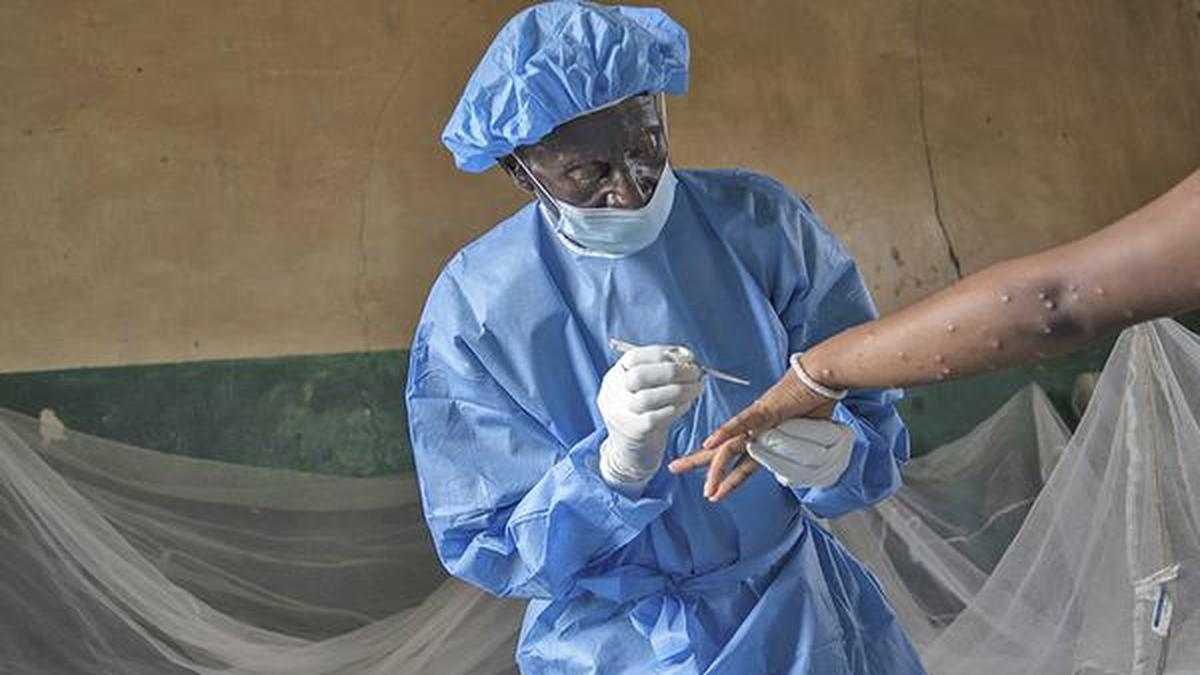A healthcare worker treats an Mpox patient at a hospital in eastern Congo’s South Kivu province on September 4, 2024.
| Photo Credit: AP
Health authorities have struggled to contain outbreaks of Mpox in Congo, a huge central African country where a myriad of existing problems makes stemming the spread particularly hard.
Last month, the World Health Organization (WHO) declared the outbreaks in Congo and about a dozen other African countries a global health emergency. And in Congo, scientists have identified a new strain of Mpox that may spread more easily.
It has reached areas where conflict and the displacement of a large number of people have already put health services under pressure.
Overall, Congo has more than 21,000 of the 25,093 confirmed and suspected Mpox cases in Africa this year, according to WHO’s most recent count.
Congo is one of the African countries where Mpox has been endemic for decades.
Mpox, once known as monkeypox, comes from the same family of viruses as smallpox but causes milder symptoms such as fever. People with more serious cases can develop skin lesions.
More than 720 people in Africa have died in the latest outbreaks, mostly in Congo.
Mpox is a zoonotic disease, meaning it can spread to humans from infected animals. In the global Mpox outbreak of 2022, the virus spread between people primarily through sex and close physical contact.
In September 2023, Mpox spread to Congo’s eastern province of South Kivu; it had previously been seen in the centre and far west. Scientists then identified a new form of Mpox in South Kivu that may be more infectious.
The WHO said that from the outbreak in South Kivu, the virus spread among people elsewhere in the country, arriving in neighbouring province North Kivu.
Escalating crises
Those two provinces — some 2,000 kilometers from the capital, Kinshasa — face escalating violence, a humanitarian crisis and other issues. More than 120 armed groups have been fighting each other and the Congolese Army for years in the eastern part of the country over the control of minerals. That has forced millions of people fleeing into refugee camps or nearby towns.
That means Mpox is hitting already-stretched health facilities. Dr. Musole Mulambamunva Robert, medical director of the Kavumu hospital in eastern Congo, said it is “truly a challenge” — sometimes treating as many as four times the facility’s capacity for patients.
With more than 6 million displaced people in the east, authorities and aid agencies were already struggling to provide food and healthcare, while fighting other diseases such as cholera. Many people have no access to soap, clean water or other basics.
Some eastern Congo communities are out of reach of health clinics — roads are unreliable, and hours-long risky boat trips are sometimes the only means of transport, said Mercy Muthee Lake of the International Federation of Red Cross and Red Crescent.
People can be more susceptible to severe Mpox cases because of malnutrition and undiagnosed HIV, she said.
Africa has no capacity to produce Mpox vaccines. Around 2,50,000 doses have arrived in Congo from the European Union and the U.S., and more are expected. Congolese authorities say they need around 3 million vaccines.
For now, the vaccine is approved only for adults as there is only limited evidence of how it works in children.
Published – September 20, 2024 08:42 am IST
